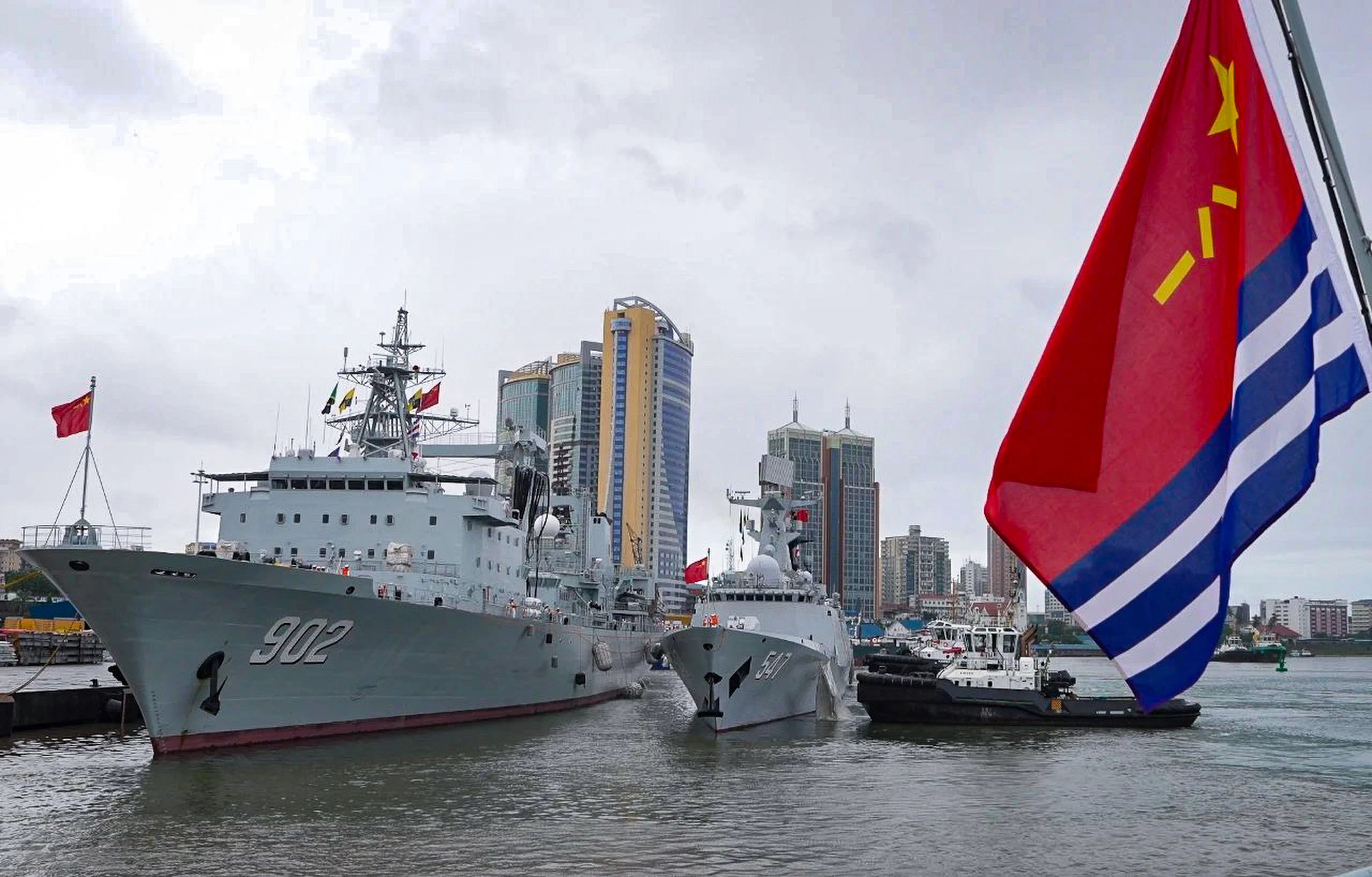By Jevans Nyabiage
Over the past two decades, China has considerably broadened its military and security diplomacy throughout Africa, establishing ties with 53 countries, excluding eSwatini.
Observers say that of those countries, Tanzania stands out as an exceptionally strong and enduring military partner for Beijing, with more than 90 per cent of its military arms from China.
According to a study released last month by the Africa Centre for Strategic Studies, Tanzania has “a very special relationship” with the People’s Liberation Army (PLA), “one you will not find in any other African country”.
Tanzania’s military inventory, order of battle, battle doctrine and service doctrine are heavily inspired by the PLA, according to the study.
“This enduring influence stems from the PLA’s involvement in setting up and building the Tanzania People’s Defence Force from 1964 to the present day, which fully explains their unique bond,” said Paul Nantulya, a China-Africa specialist from the National Defence University’s Africa Centre for Strategic Studies in Washington and the author of the study.
Tanzania is among African nations – including Mozambique, Namibia and Zimbabwe – where liberation movement parties have monopolised power since independence, and these nations have the closest ties with China on the continent.
The study on China’s widening influence in Africa through expanded security engagements shows that China remains Tanzania’s principal military partner and a primary source of weaponry, education, training and residential military advisers.
This cooperation includes frequent military drills and major weapons systems like amphibious tanks, patrol boats and fighter jets, according to Nantulya.
He said most of Tanzania’s important installations such as Ngerengere Air Base, Kigamboni Naval Base, and the Comprehensive Military Training Centre in Mapinga were Chinese-built. So were most of Tanzania’s professional military education institutions, including Monduli Military Academy and National Defence College, Nantulya added.
Nantulya explained that in 1964, following a military mutiny, the Tanzanian leadership responded by disbanding the entire Tanganyika army and rebuilding it anew.
Tanzania made the difficult decision to expel the Soviet, British and eventually Canadian instructors, and the PLA was the first to offer direct military help to rebuild the Tanzania People’s Defence Force (TPDF) from scratch.
This also coincided with the period when Chinese leader Mao Zedong provided an interest-free loan for the building of the Tanzania-Zambia Railway (Tazara), connecting Dar es Salaam port and Zambia’s copper belt, which remains its biggest foreign aid project in Africa.
Tanzania’s founding father, Julius Nyerere, admired China’s approach, particularly its focus on self-reliance and a disciplined military dedicated to national development. This aligned with Nyerere’s Ujamaa philosophy – a brand of African socialism that emphasises communal living and self-reliance.
Since then, China has had a close relationship with the TPDF, providing training and education of armed forces, joint exercises and other military support, according to Darren Olivier, director at African Defence Review, an Africa-based defence and security analysis platform.
“Chinese military equipment is available at attractive prices and with few or no strings attached,” Olivier said.
He said the Chinese offer was attractive for the relatively cash-constrained TPDF, and – at least during the Cold War – provided a mostly non-aligned option for Tanzania rather than going fully into either the Western or Soviet spheres of influence.
China and Tanzania hold frequent joint exercises, such as Peace Unity-2024, which also included the participation of Mozambique.
The 2024 drill was the fourth joint military exercise between Tanzania and China, following similar exercises in 2014, late 2019 and early 2020, and September 2023, known as Beyond-2023. The Peace Unity-2024 exercise was particularly notable due to its unprecedented scale, involving the deployment of hundreds of Chinese troops across extensive land and sea operations.
It is during last year’s joint military exercise that Tanzania’s navy commander Ramadhan Hassan affirmed China’s crucial role in establishing Tanzania’s marine special forces in 1969 and in providing support and help in nurturing maritime capabilities since then. He called it “a testament to the enduring comradeship between the two defence forces”.
David Shinn, a China-Africa expert and professor at George Washington University’s Elliott School of International Affairs, said that while China was trying to expand its military engagement across the continent and make larger military sales with several richer and more populous African countries, “no other country has the historical military tie with China that Tanzania has”.
“Tanzania is arguably China’s longest, continuous military partner in Africa. Tanzania has obviously been satisfied with this cooperation over the years,” he said.
Tim Zajontz, a research fellow with the Centre for International and Comparative Politics at South Africa’s Stellenbosch University, said Tanzania’s heavy reliance on the Chinese military industry was rooted in long-standing institutional and personal ties between the Chinese and the Tanzanian militaries.
He said China was attractive for African countries because it offered comprehensive, long-term and flexible cooperation in the security realm.
“Chinese arms are very competitive in terms of both price and technology. Thanks to the close cooperation between the armed forces, purchasing Chinese arms comes with training on how to use them and with maintenance,” said Zajontz, who is also an interim professor of international relations at the University of Freiburg.
